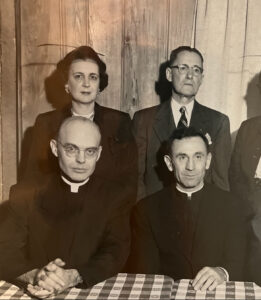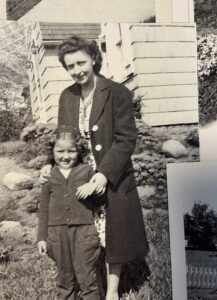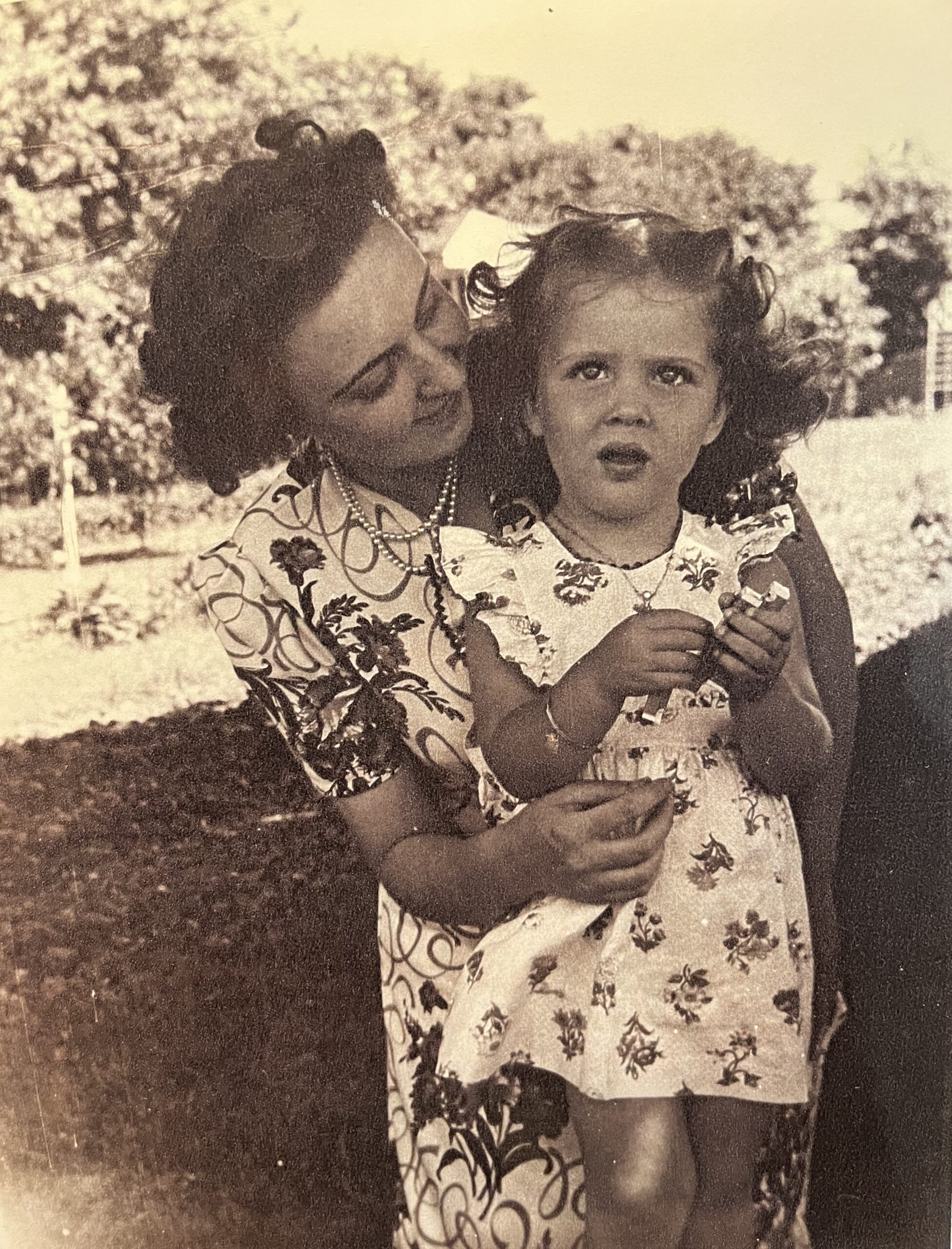By LAKE ANGELA

Courtesy of Marilyn Kreger
Diamondville, Pennsylvania
Meryl: In Diamondville II
Quiet Uncle Peck was just five when the older kids
set him on fire. This was one hundred years ago,
and Grandpa told me the story. The closest hospital
to Diamondville sent him home, saying there was
nothing more they could do. Grandmother Verna took care
of him, anointing his wounds with devotion, rotating
his torso and arms, helping him walk again.
Of course, he would be scarred deeply all his life,
until he married Aunt Vera, who had a humped back,
and they had six beautiful children. Kids had set him
ablaze. What happened to the kids? I asked Grandpa.
Did the police come? No, Grandpa said, the police
don’t come to Diamondville. No, they disappeared.
Where? I believe they are at the bottom of the mineshaft.
That’s the way things were back there.
Meryl: In Diamondville III
No doors existed in Diamondville. I stayed
my childhood summers with Grandma Verna on the hill
atop the whole village. The graveyard stretched below,
two churches lower still. We had no running water
but eight of us girls played all day in the still
swimming hole. In dark water under willows
black snakes longer than sunset sailed past our young limbs
to total freedom among the miners and the coal.
There was one general store, but it didn’t sell butter
or bread; you made your own in Diamondville. Phones chimed
across the village from end to end, each with its own melodic
ring, and all could listen in. No locks or keys, no hiding
places or hospitals. We learned to listen well.
At night we slept deep in goose down beds
after feeding the fire on the porch in the pitch dark,
fireflies shooting past and grandparents’ eyes glistening
from moonshine. If you stepped off—there was no railing—
you fell straight down to the road like grandpapa’s pipe bowl
the night it glanced off the gravestone, rolled to the base
of the Baptist church after the first freefall.
You had to be smart enough to survive
if you were blessed enough to be
a child in Diamondville.
Meryl: In Diamondville IV
My husband named our girls. He liked D names,
so five of the seven start with that letter. I’ve missed him
much longer now than the years we spent together.
Unlike Mother, who was forced to marry father,
a coal man who rose from the mines, worked for the paper,
saved a little money that cast a long cavern
into the Depression. As a child I saw him desperate
only once. Father dragged me by the arm without seeming
to see me, down in Diamondville where his ghosts live.
As if in prayer, he knelt and blessed a knife sharpened
in the setting sun, then bent to file three caustic letters
from his father’s white grave. Not one of us has a K name.
Drenched in more sweat than I’d seen him wear,
he gave up and planted a thornbush that threw its lacerating
hair over the headstone. My own children begin with Dawn.

Courtesy of Marilyn Kreger
Meryl: Diamondville V
Honor your Grandmother by attending
the Southern Baptist church with her.
Do not make anyone drive you into Clymer
from Diamondville for the Catholic Mass.
Instead, wear your best wide-brimmed hat,
flaming cardinals nestled upon the crest.
Honor your Grandmother. I rather
liked the spirited Baptist services
because you could see out the windows:
no artfully cracked glass to color the view.
Honor your Host, Walter, my Catholic priest uncle
always said. Grandma Verna never shook in fear
beneath the stained red mouth of St. Dymphna
who gripped the devil in chains of eternal glass.
Instead, she had a clear view of the black
vultures spotting the heavenly soft grass
above our coal-smudged hills. Honor
your Grandmother. Grandchild,
you would have loved her.
Meryl: In Diamondville VI
On a February eve Aunt Máible and her husband
got into a fight at the local bar. She left to walk home,
so he ran her down with his car. She was in critical
condition for weeks, stayed asleep. There wasn’t
enough wood to sustain the winter. They stayed
together, of course, and everyone accepted it.
In Diamondville you had to stay together if you wanted
to survive. All year long, he hunted rabbits and deer
so they could eat, but never whistlepigs. He had
to have some respect for her, for Aunt Máible forbade
he touch that animal. My aunt had to mow sidewards
on the steep hills else the rain would send the fields
cascading down the crooked, low peaks. Some maintain
I seem like her, uncanny how she stayed alive, and after
that February gained the power to prophesy, to shift
the coal-deep darkness. They whispered in her wake,
yet left her milk and potatoes to take when she came down
from the hills. While Aunt Máible was away at the peak,
I sneaked and rode upon her cows out to pasture. Each time,
everyone in town held their breath, thinking one day
we might fall.
Lake Angela is a poet, translator, and dancer-choreographer from Lake Erie whose books include Organblooms, Words for the Dead, and Scivias Choreomaniae. The poems from Diamondville belong to her collection Autobiography of My Grandmothers, an homage to her grandmothers that records their experiences in the first person. Lake holds a PhD in intersemiotic translation and is a medieval mystic. Her work can be read in Seneca Review, Portland Review, filling Station, and Poetry Salzburg Review, among others. With her poetry-dance group Companyia Lake Angela, she presents the value of schizophrenia spectrum creativity: www.lakeangeladance.com.




